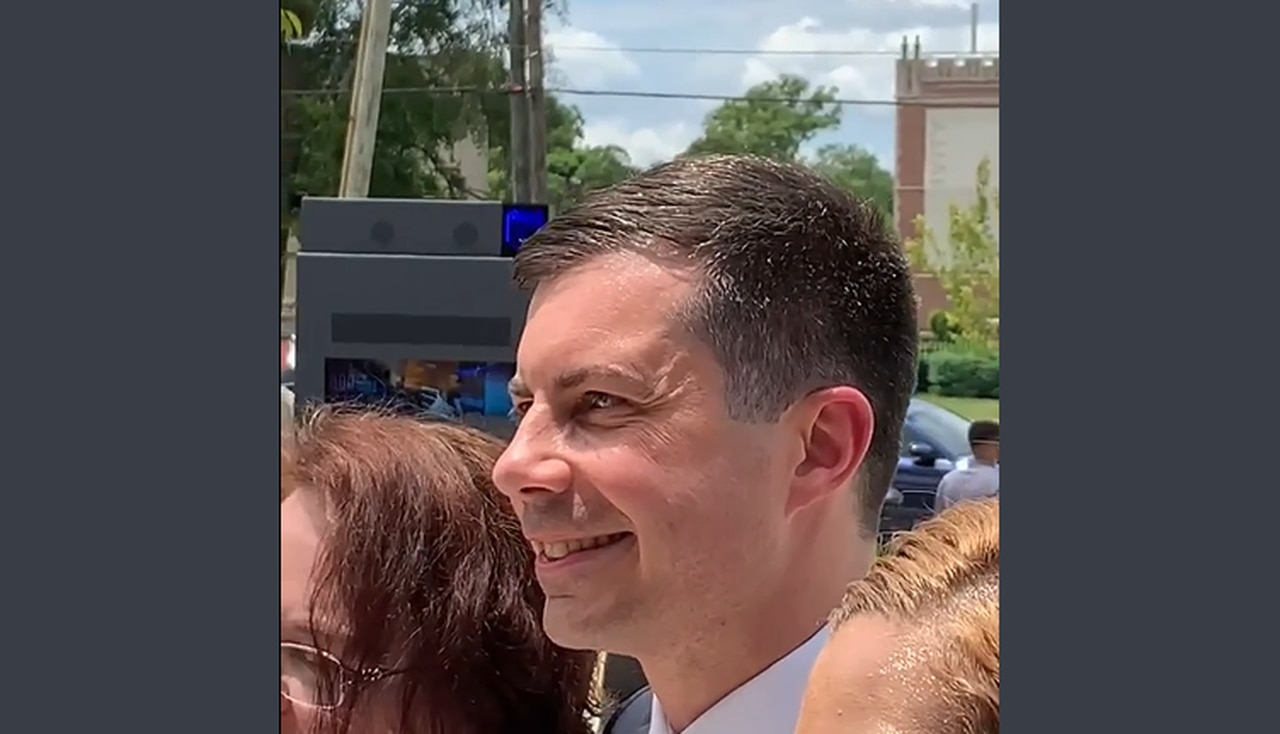Birmingham wins federal grant to re-connect communities separated by rail lines, highways
Birmingham was awarded a federal grant today to re-connect communities separated by highways and rail lines.
U.S. Transportation Secretary Pete Buttigieg announced $800,000 to support Birmingham’s Transportation Capital Investment Plan through the new Reconnecting Communities Pilot Program, an initiative to reconnect communities that have been cut off or isolated by past transportation infrastructure decisions. It’s one of 45 projects receiving $185 million in grant awards.
In Tuesday’s Birmingham City Council meeting, council member Darrell O’Quinn said the grant would be used for planning purposes, “to evaluate where we have those issues.”
Established by President Biden’s Bipartisan Infrastructure Law, the Reconnecting Communities Program provides technical assistance and funding for communities’ planning and construction projects that aim to connect neighborhoods back together by removing, retrofitting, or mitigating transportation barriers such as highways and railroad tracks.
“Transportation should connect, not divide, people and communities,” Buttigieg said in a statement released with the announcement. “We are proud to announce the first grantees of our Reconnecting Communities Program, which will unite neighborhoods, ensure the future is better than the past, and provide Americans with better access to jobs, health care, groceries and other essentials.”
In a visit to Birmingham last year to announce the program, Buttigieg said that transportation infrastructure has historically divided neighborhoods and cut off communities from opportunity. For example, highways and rail lines can be physical barriers, preventing residents from easy access to social and economic opportunities. This burden is often felt most by communities of color.
This first round of grants will fund construction and planning for transformative community-led solutions, including capping interstates with parks, filling in sunken highways to reclaim the land for housing, converting inhospitable transportation facilities to tree-lined Complete Streets, and creating new crossings through public transportation, bridges, tunnels and trails. These projects will help revitalize communities, provide access to jobs and opportunity, and reduce pollution.
President Biden recently issued a new executive order directing agencies to further advance racial equity and support for underserved communities including through federal actions that strengthen equitable development and expand economic opportunity in rural communities. The effort aims to improve access to jobs, healthcare services, grocery stores, and places of worship.
In this first round of funding for the Reconnecting Communities Program, the Department is awarding 39 Planning Grants and six Capital Construction grants.
Birmingham’s planning award will advance data-driven transportation recommendations in the nine Imagine Birmingham plans and other relevant assessments to mitigate the negative impact of interstates, railroads, and major arterial roadways. The Transportation Capital Investment Plan will identify implementation projects that leverage existing corridors to reconnect Birmingham’s historic neighborhoods, thriving urban villages, and commercial areas. When a controversial racial zoning law was struck down in 1950, Birmingham planners used the ensuing construction of interstates to advance a segregationist agenda by purposefully building the new highways along a route that mirrored the old racial zoning boundaries. The new highway network resulted in a clear physical and psychological delineation between black and white communities, one that continues to this day.
The full list of Reconnecting Communities program awards can be viewed HERE.
The Department prioritized applications from economically disadvantaged communities, especially those focused on equity and environmental justice, and that demonstrated strong community engagement and stewardship, and would catalyze shared prosperity in its development and job creation. The Department partnered with the Environmental Protection Agency and the Department of Housing and Urban Development in its application review.
Additionally, the Department is using the Reconnecting Communities Institute to provide technical assistance to build organizational and community capacity available to grant recipients and other eligible entities interested in reconnecting communities. The Department will prioritize recipients serving economically disadvantaged communities for technical assistance. More information on the Reconnecting Communities Institute is available HERE.
President Biden’s Inflation Reduction Act also established a new, $3 billion program called the Neighborhood Access and Equity Grant Program which can also fund projects that reconnect communities. USDOT anticipates launching this program later this spring.
Earlier this year, DOT provided $105 million through the INFRA program for the I-375 Community Reconnection Project in Detroit, Michigan. The I-375, which opened in 1964, paved through two prosperous Black neighborhoods – Black Bottom and Paradise Valley. The construction of the interstate displaced 130,000 people and hundreds of small businesses. DOT awarded a $105 million INFRA grant for this project converting the highway to a street-level Complete Streets boulevard with walkways and greenspace.
As part of its commitment to improving transportation equity and the Department’s Equity Action Plan, USDOT also launched the Thriving Communities Program last fall, which facilitates the planning and development of transportation and community revitalization activities and provides tools to ensure that under-resourced communities can access the historic funding provided by the Bipartisan Infrastructure Law.
See also: Transportation secretary announces $1 billion to reunite communities
